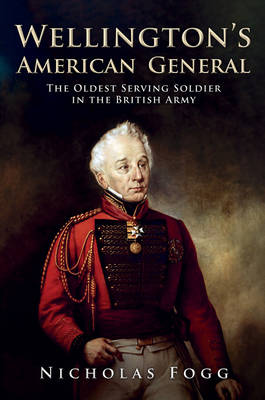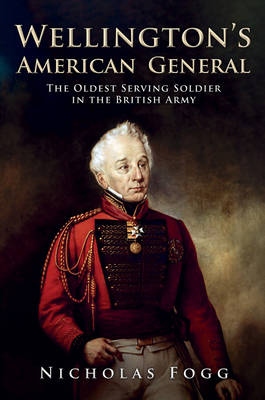
- Afhalen na 1 uur in een winkel met voorraad
- Gratis thuislevering in België vanaf € 30
- Ruim aanbod met 7 miljoen producten
- Afhalen na 1 uur in een winkel met voorraad
- Gratis thuislevering in België vanaf € 30
- Ruim aanbod met 7 miljoen producten
Zoeken
Wellington's American General
The Oldest Serving Soldier in the British Army
Nicholas Fogg
Hardcover | Engels
€ 27,95
+ 55 punten
Omschrijving
An American general in Wellington's army? At the age of fourteen, Frederick Robinson fought for the Loyalists in the War of Independence. With their defeat, his now impoverished family took refuge in England. After serving against the French in the West Indies, he worked in army recruitment in London. In 1813 he joined the Peninsular campaign as a Brigade Major General. His journals and letters shed light on the local topography and the personalities he encounters - the British grandees of Oporto, landed gentry, priests and peasants, Wellington and his generals and the common soldier. He also describes the marches across country and the battles of Vitoria, San Sebastian, the Nime and Toulouse. Subsequently, he commanded a division in America during the War of 1812. After colonial governorships in Upper Canada and Tobago, he continued to contribute as a Regimental Colonel. At his death in 1852, he was the longest-serving soldier in the British Army.
Specificaties
Betrokkenen
- Auteur(s):
- Uitgeverij:
Inhoud
- Aantal bladzijden:
- 320
- Taal:
- Engels
Eigenschappen
- Productcode (EAN):
- 9781398102590
- Verschijningsdatum:
- 15/06/2022
- Uitvoering:
- Hardcover
- Formaat:
- Genaaid
- Afmetingen:
- 152 mm x 236 mm
- Gewicht:
- 589 g

Alleen bij Standaard Boekhandel
+ 55 punten op je klantenkaart van Standaard Boekhandel
Beoordelingen
We publiceren alleen reviews die voldoen aan de voorwaarden voor reviews. Bekijk onze voorwaarden voor reviews.











